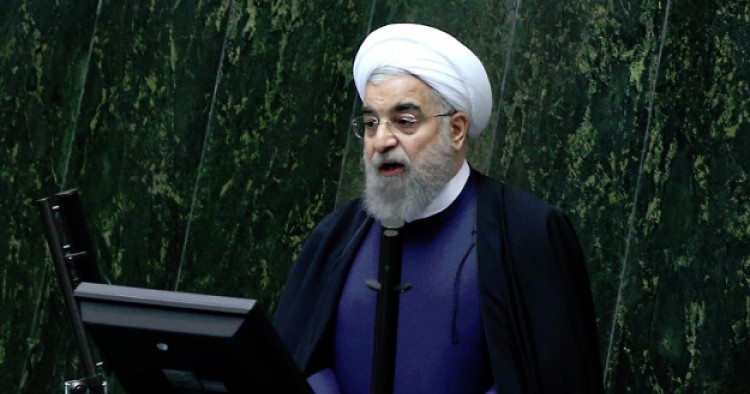Iranian President Hassan Rouhani has pledged that his government will do its utmost to implement policies that will strengthen the country’s “resistance economy” and stimulate growth. In a letter to Supreme Leader Ali Khamenei on Wednesday, Rouhani emphasized that his administration planned to hold a cabinet session to discuss Supreme Leader’s latest instructions and explore ways of increasing domestic production and creating jobs – particularly for young Iranians. He added the government will then share its plan with the Supreme Leader and the Iranian people.
Comment: Khamenei has repeatedly criticized the government’s economic record in the past one month. The timing of his criticism is significant as Rouhani is seeking a second term in the next presidential elections slated for May. “With all my soul, I feel the pain of the people, particularly the lower class, and their problems such as high prices, unemployment, discrimination, inequalities and social tragedies,” he said in his latest rebuke of the Rouhani government on Monday. In his televised speech on Monday, Khamenei also called the new Iranian year the year of “Resistance Economy: Production and Employment.” Resistance economy is a term used by Iranian leaders for a set of economic policies to reduce the country's dependence on the outside world and promote self-sufficiency. Thus, the aim of the Rouhani’s letter is to appease and seek support of Khamenei ahead of the elections.
Rouhani had pledged to negotiate a nuclear deal with world powers to remove sanctions and improve the country’s economy during his 2013 election campaign. But although nuclear-related sanctions on Iran were lifted after the 2015 Iran deal, unilateral American sanctions and the Trump administration’s tougher line on the Islamic Republic have dissuaded international companies from doing business with Iran. Moreover, the Rouhani government’s failure to tackle corruption and mismanagement is equally to blame. As a result, most Iranians have not felt the benefits of the nuclear accord the way they expected
The Middle East Institute (MEI) is an independent, non-partisan, non-for-profit, educational organization. It does not engage in advocacy and its scholars’ opinions are their own. MEI welcomes financial donations, but retains sole editorial control over its work and its publications reflect only the authors’ views. For a listing of MEI donors, please click here.












